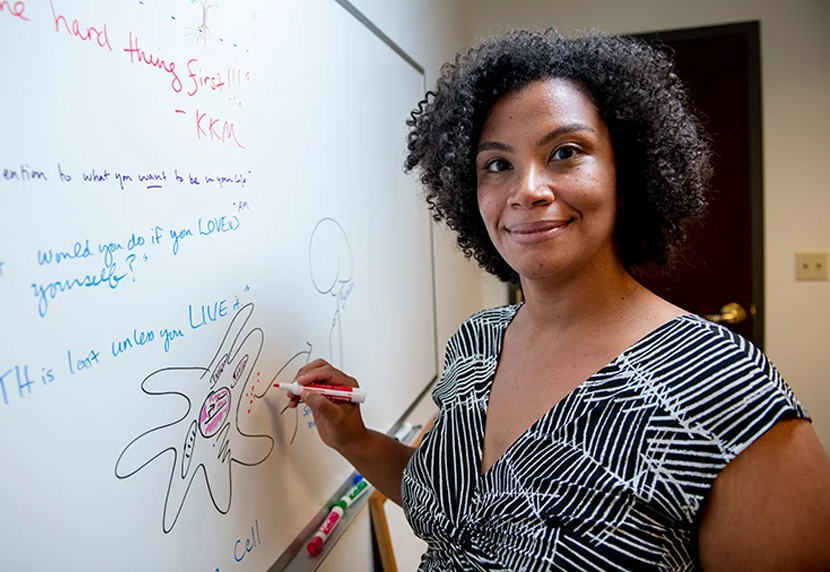Helen Riess, MD, is the founder and director of the Empathy and Relational Science Program at Massachusetts General Hospital and an associate professor of Psychiatry at Harvard Medical School. Her work has been featured in professional journals and media throughout the U.S.; her book, The Empathy Effect, is licensed in ten countries; and her TEDx Talk, The Power of Empathy, has received more than 550,000 views.
How did you develop your passion for your life’s work?
It stems from growing up in the shadow of my father’s trauma. His parents were executed by the Tito regime in Yugoslavia in World War II when he was just 14 years old, and he never truly recovered.
Empathic patient-physician relationships increase the likelihood that patients will adhere to treatments and have better health outcomes.
What does it mean to have empathy?
Empathy starts with opening your eyes. When I worked in Africa, I learned that the Zulu tribe uses the word, ‘sawubona’– for ‘hello’. It means ‘I see you.’ Every human being has a longing to be seen, understood and appreciated.
Empathic care ensures that the emotional needs, along with the physical needs, of patients and families are recognized and addressed. My father had never healed from the trauma of losing his parents. In his final moments, I held his hand and, said, “Your parents are going to be so happy to see you on the other side.” His face softened, his breathing slowed and he passed away, just minutes after I arrived at his bedside in Oregon. I’ll never forget the empathic words of his nurse, Theresa, who said, “You know, he was waiting for you.”

What can we learn about empathy from brain imaging?
Increasing evidence suggests that empathy is hardwired into the brain. For example, one group of subjects have their brains scanned while their fingers are pricked by needles. The precise brain regions involved in the perception of pain can be seen clearly in the scan. Then, another group of subjects have their brains scanned while observing a video of the pin prick. In this second group, the same areas of the brain are activated, but not to the same extent as the first group.
That is both remarkable and useful. If you were to experience the full and complete degree of pain of the victim just by observing their experience, empathy would be thwarted. Guess whose pain you’d be focused on then? Your own.
Can you describe the value of empathy in health care?
Empathic patient-physician relationships increase the likelihood that patients will adhere to treatments and have better health outcomes. These relationships also lead to fewer medical errors and malpractice claims.
I’ve found that there can be a decline in empathy during medical education that persists beyond training — this is often referred to as “burnout” or “compassion fatigue.” Caring for people who are suffering emotionally and/or in physical pain can be overwhelming for the caregiver who may become distant or hardened in response.
Without empathy and compassion in a pandemic, it would be difficult if not impossible for us to survive as a community.
Training is key. Our team’s work focuses on training in non-verbal communication skills, which can significantly enhance physician empathy in such a way as to protect the caregiver and refine the healing process through awareness of self and others’ emotions and self-management strategies. We also teach perspective taking, which means viewing patients’ experiences through their spectacles, instead of our own, which opens up a vast opportunity for understanding them.
How has COVID-19 affected your work?
During the COVID-19 pandemic, our team has focused on several research studies including the importance of empathy in the organ donation conversation; reducing burnout among caregivers; and examining the impact of the patient-health provider relationship on health outcomes. Future research could examine the effects of empathy on length of hospital stays and re-admission rates.
What’s interesting about the research is that it has become clear that we are linked to each other’s experiences and pain. Empathy literally binds us together and primes us to help each other. Not to put too fine a point on it, without empathy and compassion in a pandemic, it would be difficult if not impossible for us to survive as a community.
People have faced many crises throughout history. It’s not the ‘survival of the fittest,’ but cooperation, collaboration, love, meaning and purpose that gets us through.
To learn more about how you can support the Empathy and Relational Science Program, please contact us.


